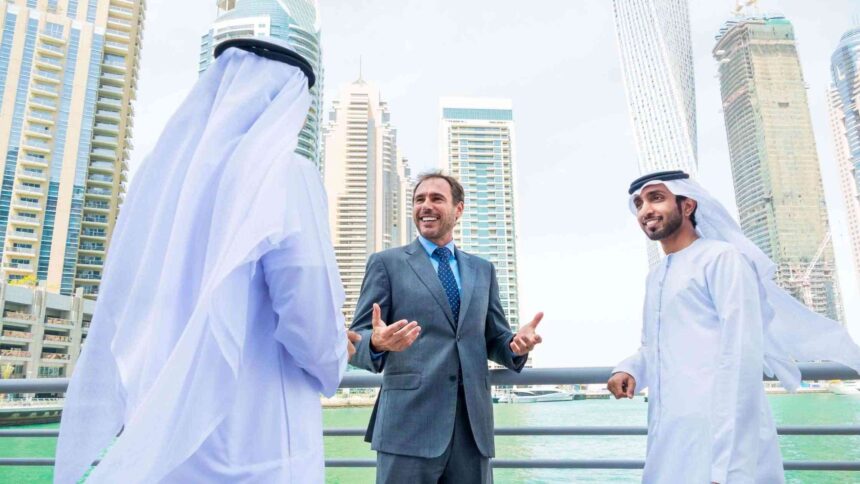In the world of real estate of the EAU, entering without a good strategy and leaving is asking for problems. Bets are high, even higher financial commitments, and the market is nothing less than dynamic. So what is the best thing that traps can avoid and pave the way to success? A solid feasibility study such as a rock. Yes, those detailed reports that are immersed in each aspect of your project. In this blog, we will explore why conduct viability studies in the EAU is an absolute necessity.
The United Arab Emirates (UAE) has long been a beacon of architectural marvels, iconic skylines, and dynamic real estate developments. From Dubai’s Burj Khalifa piercing the clouds to Abu Dhabi’s meticulously planned communities, the UAE real estate sector is a testament to visionary ambition. However, behind the glitz and glamour lies a crucial element that drives success: the feasibility study.
In this article, we delve into the power of feasibility studies in UAE real estate, exploring how they shape successful projects, mitigate risks, and ensure sustainable growth.
What is a Feasibility Study?
A feasibility study is a comprehensive analysis conducted before embarking on a project. It evaluates the project’s technical, financial, legal, operational, and market viability. In essence, it answers the pivotal question: Is this project worth pursuing?
In the UAE real estate context, where massive investments and tight timelines are common, a feasibility study acts as a compass, guiding developers toward informed decisions.
Key Components of a Feasibility Study in UAE Real Estate
Market Analysis
-
Why it matters: The UAE’s diverse market—ranging from luxury apartments to affordable housing and commercial spaces—demands an in-depth understanding of demand-supply dynamics.
-
Insights: A thorough market study identifies target segments, rental yields, occupancy rates, and competitive positioning. For instance, knowing if a residential tower in Dubai Marina meets the current demand for waterfront properties can make or break a project.
Financial Feasibility
-
Why it matters: With significant capital investments, developers need a clear picture of profitability.
-
Insights: This includes cost estimates, revenue projections, return on investment (ROI), net present value (NPV), and breakeven analysis. It helps determine if the project can secure funding and remain financially viable in the long term.
Technical and Legal Viability
-
Why it matters: The UAE has strict building codes, zoning laws, and sustainability mandates.
-
Insights: The feasibility study ensures the project complies with regulations, secures necessary permits, and aligns with green building initiatives (like Estidama in Abu Dhabi or Dubai’s Green Building Regulations).
Operational Feasibility
-
Why it matters: Smooth operations post-construction are key to long-term success.
-
Insights: This involves planning for property management, maintenance, and community services. It also factors in technology integration like smart building solutions.
Why Feasibility Studies are Critical in UAE Real Estate
Risk Mitigation
The UAE real estate sector is dynamic but not immune to risks. A feasibility study identifies potential obstacles—be it financial, legal, or operational—and allows developers to create contingency plans.
Informed Decision-Making
Developers, investors, and stakeholders need concrete data to justify investments. A well-executed feasibility study provides actionable insights, reducing guesswork.
Regulatory Compliance
With regulations evolving to promote sustainability and quality, feasibility studies ensure projects adhere to legal frameworks. This avoids costly penalties and project delays.
Investor Confidence
Investors are more likely to back a project with a solid feasibility study, as it demonstrates thorough planning and financial prudence.
Real-Life Examples from UAE
-
The Dubai Expo 2020 site underwent rigorous feasibility assessments to ensure its transformation into Expo City Dubai was both viable and sustainable.
-
Abu Dhabi’s Saadiyat Island developments were meticulously planned with market, legal, and environmental feasibility considerations, contributing to its success as a premium destination.
How to Conduct a Feasibility Study for UAE Real Estate
Step 1: Define the project scope and objectives.
Step 2: Conduct market research to assess demand and competition.
Step 3: Develop financial models projecting costs, revenues, and ROI.
Step 4: Review legal requirements and obtain permits.
Step 5: Assess technical feasibility, including infrastructure and sustainability compliance.
Step 6: Prepare a comprehensive feasibility report summarizing findings and recommendations.
Many UAE-based real estate consultants specialize in conducting feasibility studies, ensuring alignment with local regulations and market trends.









